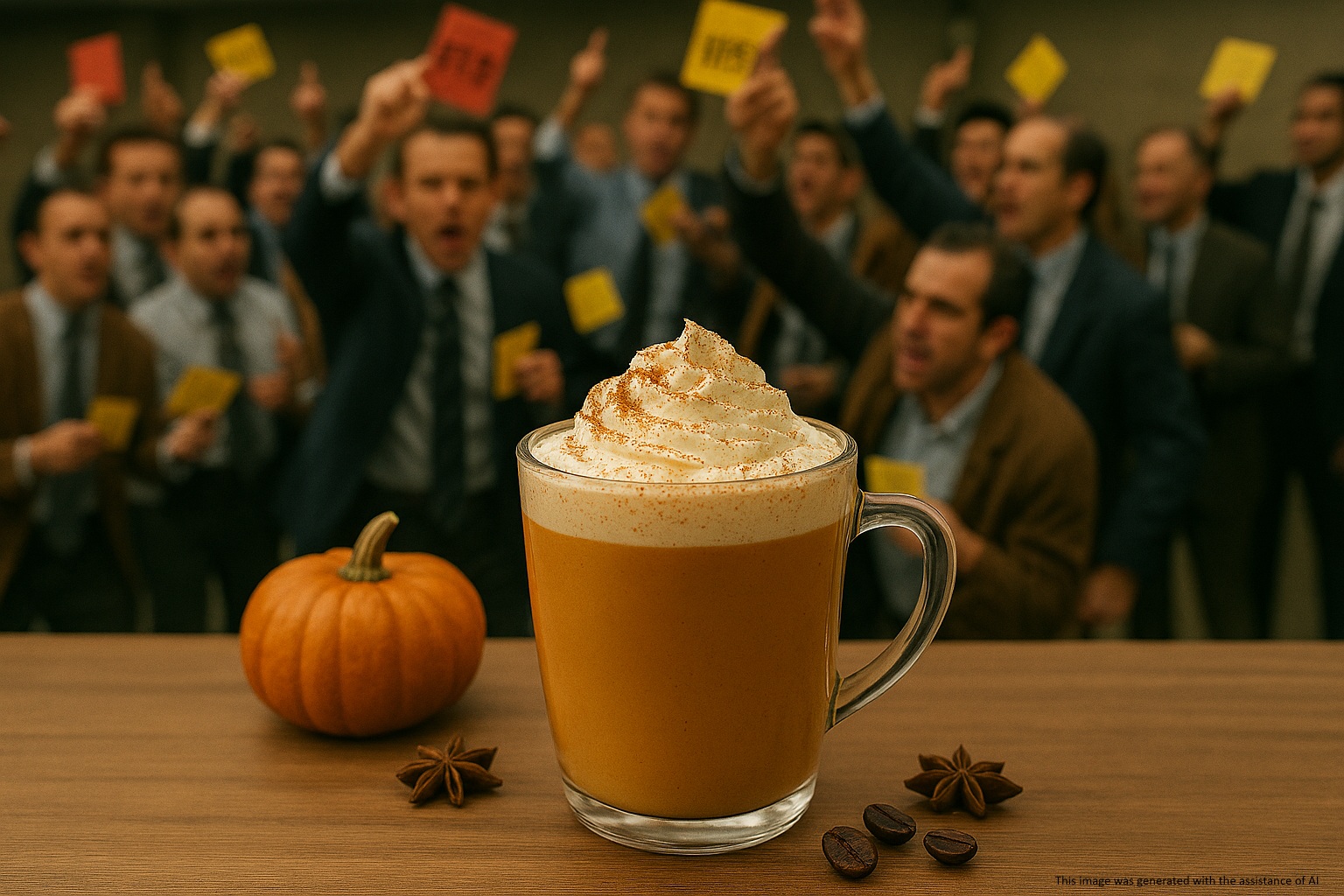Price $pike Latte
Submitted by Atlas Indicators Investment Advisors on September 5th, 2025
The calendar has turned, and we find ourselves on the backside of Labor Day. Halloween, however, is nearly two months away. America finds itself in a sort of doldrums. Summer is unofficially over, yet the holiday season has not arrived. Many Americans resort to Pumpkin Spice Lattes (PSL) as a way of taking the edge off of this uneventful period. If that’s your cup of tea, grab a friend on your way to the coffee shop and convince them to pay as tariffs are impacting the prices of the ingredients in PSL.
Even if you can’t taste it, coffee is the base ingredient in a PSL. This commodity is now being tariffed between 10-50%. It also happens that Brazil is the largest supplier of coffee to America, and it is being tariffed 50%. In response to the American tariffs, China opened up a five-year trade deal for Brazilian beans according to this article from dailycoffeenews.com. The tariffs levied on America’s second largest supplier, Columbia, comes in at a much lower 10%, so there will likely be shifts in orders their direction. The nation’s third largest supplier of coffee beans is Vietnam, and tariffs on their goods are levied at 20%.
Coffee isn’t the only input in a PSL. Of course there is water, but most coffee shops take theirs from the tap, not importing the ingredient. But essential spices for the PSL come from other countries. Ingredients like cinnamon, nutmeg, and cloves are grown in climates not found in large ways in America. These flavors require tropical climates, so they often come from India. After a second tariff went into place last week (August 27th), tariffs levied on most items from this quickly growing economy are also 50% currently.
Who knew a seasonal delight could find itself in the middle of geopolitics. For years Americans have enjoyed the complexity of flavors without needing to concern themselves with the complexity of trade necessary to have it arrive at the local coffee shop. Exporters a surely cheering on Americans to keep consuming the caffeinated delight, but wallets across the nation might be wondering if its time to switch to tap water.

